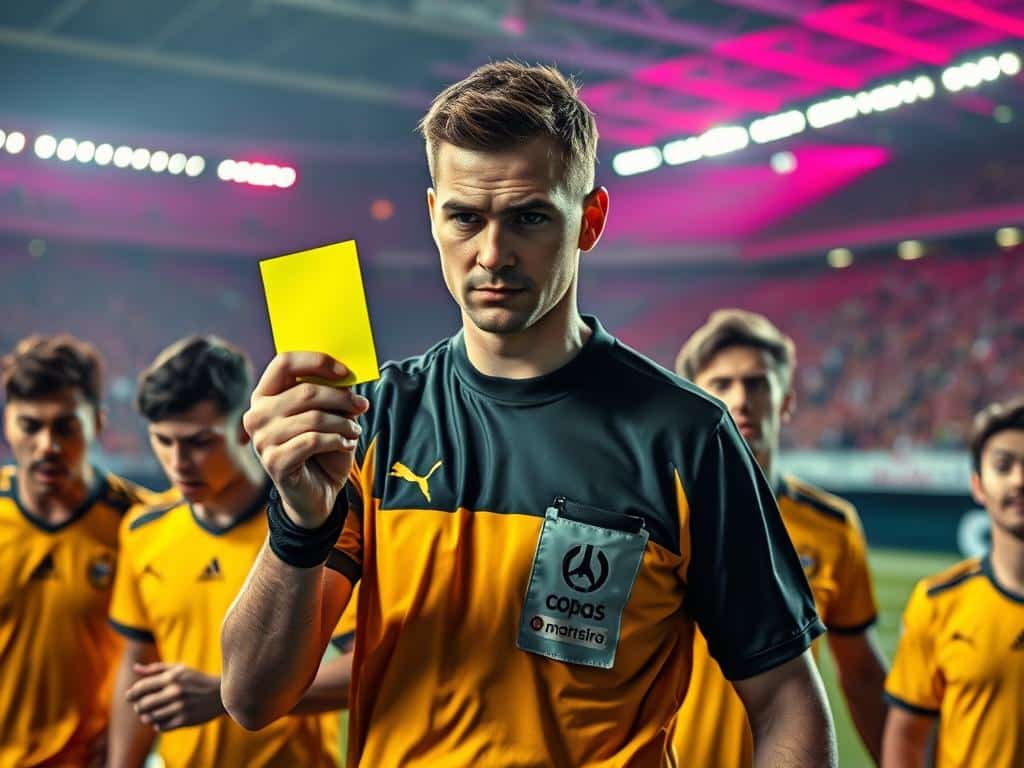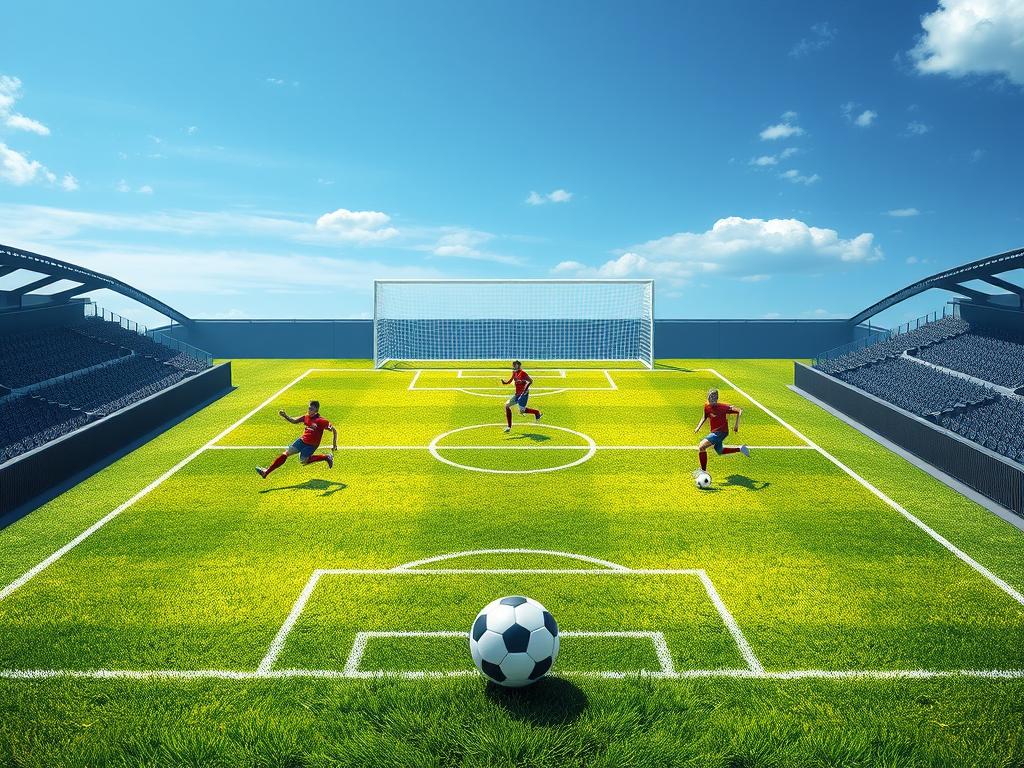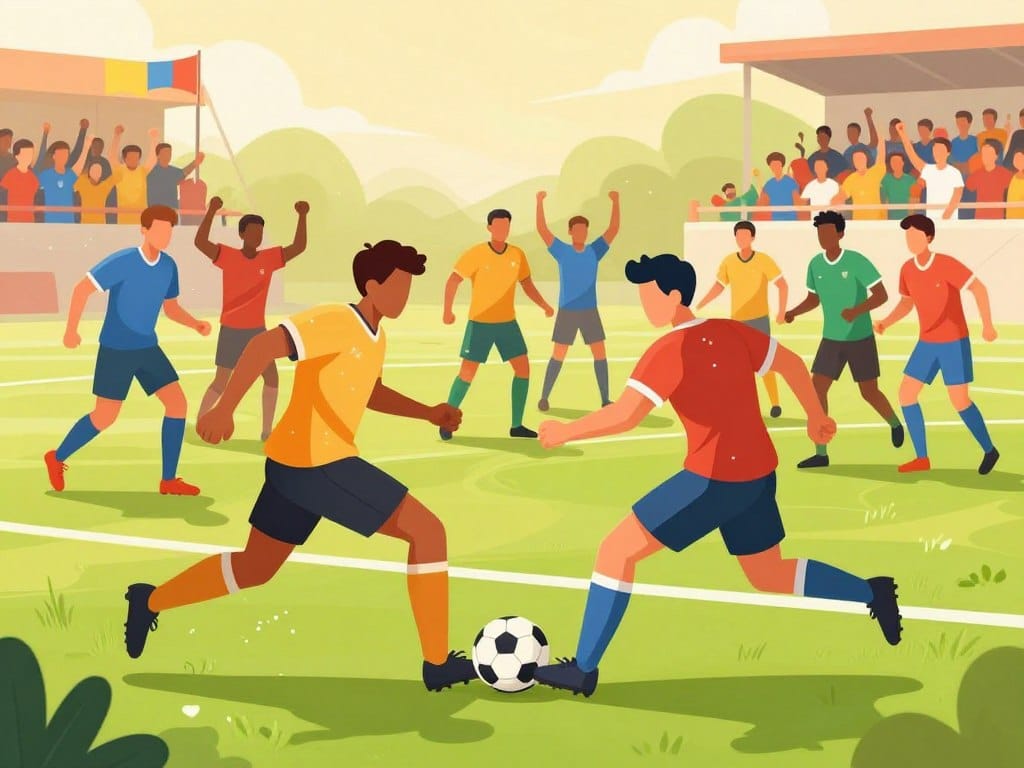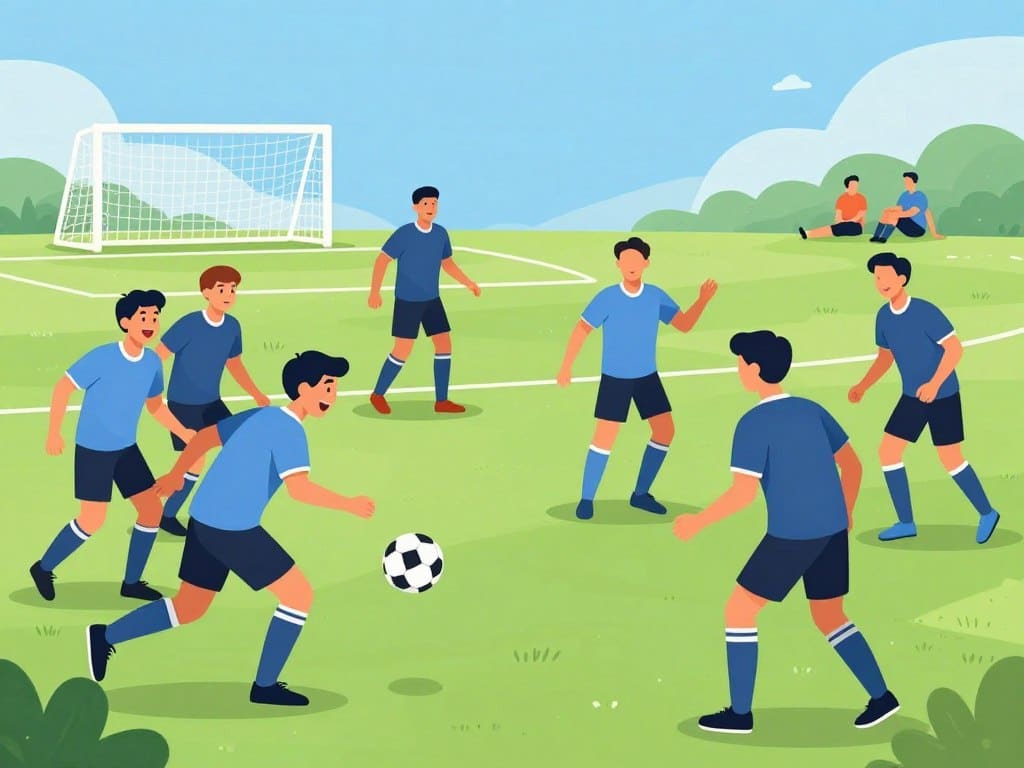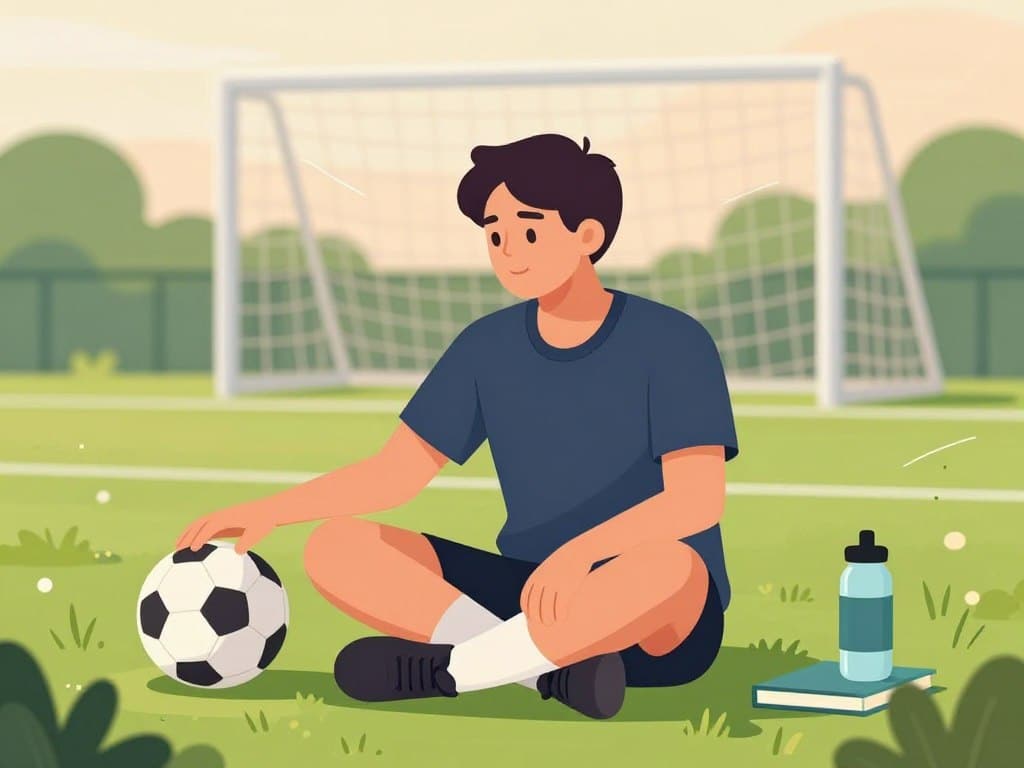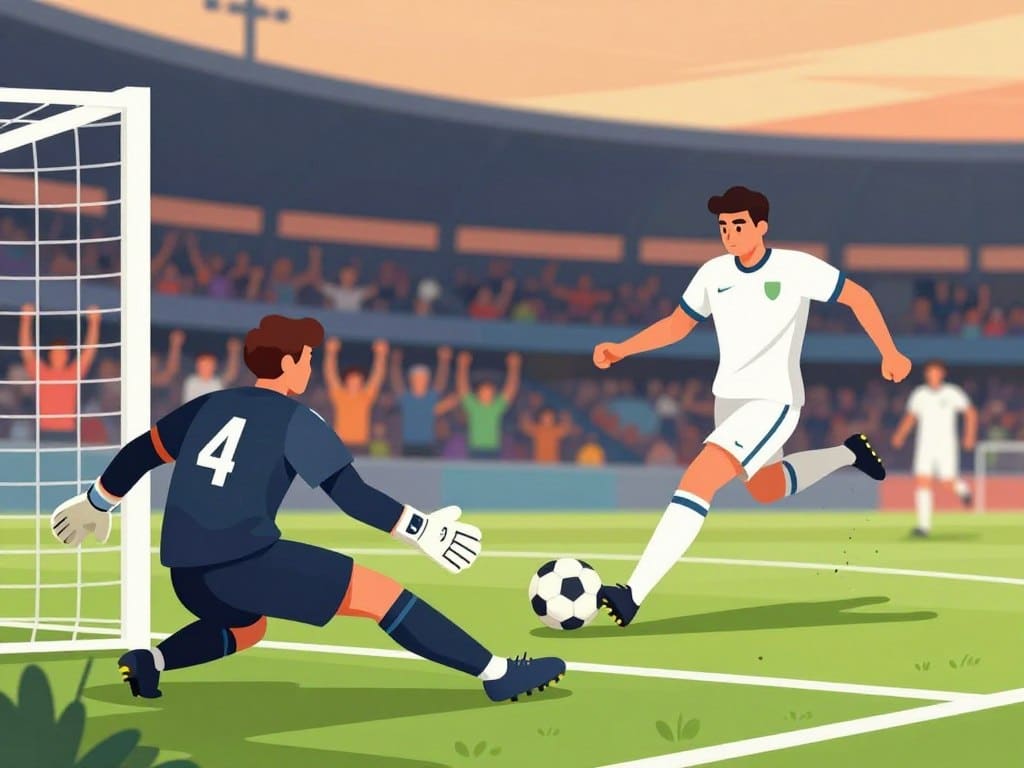Ever wondered if you can express your frustration to the referee during a soccer game? The answer is no. Complaining to the referee is not just frowned upon—it’s against the rules. Let’s explore the soccer rules and the referee’s role to see why staying calm is important.
Soccer’s beauty comes from its self-officiating nature. Players are expected to keep the game respectful. At In-Shape Family Fitness leagues, for example, play intensity is about 75% of normal aggressive play. This helps reduce player-referee conflicts and unsportsmanlike behavior.
League hosts have a lot of power to keep the game orderly. They can kick players out for misconduct like arguing with officials or using bad language. For example, getting a red card means a minimum 2-game ban, and fines can be added based on the offense.
Knowing when to talk to the referee is key to avoiding penalties. Captains can ask officials for clarification, but open complaints or arguments are not allowed. Remember, referees are there to make sure the game is fair and safe for everyone.
Understanding Referee Authority in Soccer Matches
Soccer referee authority is key to fair play in every game. Referees have a lot of power to keep the game running smoothly and safely. They do more than just follow the rules; they keep the game’s spirit alive.
Powers and Responsibilities of Match Officials
Match officials have many duties. They start the game clock, enforce rules, and make big decisions on penalties and free kicks. They also manage player substitutions and control the game’s flow. Sometimes, they can kick out players for bad behavior without warning.
Decision-Making Process During Games
Referees make quick decisions that can change the game. They use their knowledge, experience, and position to make accurate calls. In pro games, VAR helps review big decisions, but the referee’s call is final.
Maintaining Order and Control on the Field
Keeping the game in order is a big part of refereeing. Officials make sure players are at the right distance for free kicks, manage their behavior, and keep the game orderly. They can restart play or redo a restart if needed. This power helps avoid conflicts and keeps the game fair for everyone.
- Referees can eject players for serious misconduct
- They manage substitutions and enforce proper distances for free kicks
- Officials have the power to restart play if requirements aren’t met
It’s important for players, coaches, and fans to understand soccer referee authority. It helps respect the game and ensures fair play at all levels.
Is Complaining to a Referee Legal Soccer
Soccer player-referee communication is key in the game. Players often want to share their thoughts during matches. But is it okay to complain to a referee in soccer?
Official Rules Regarding Player-Referee Communication
The Laws of the Game give referees control over the game. Their decisions are final and can’t be changed during the game. So, arguing with calls on the field is not allowed.
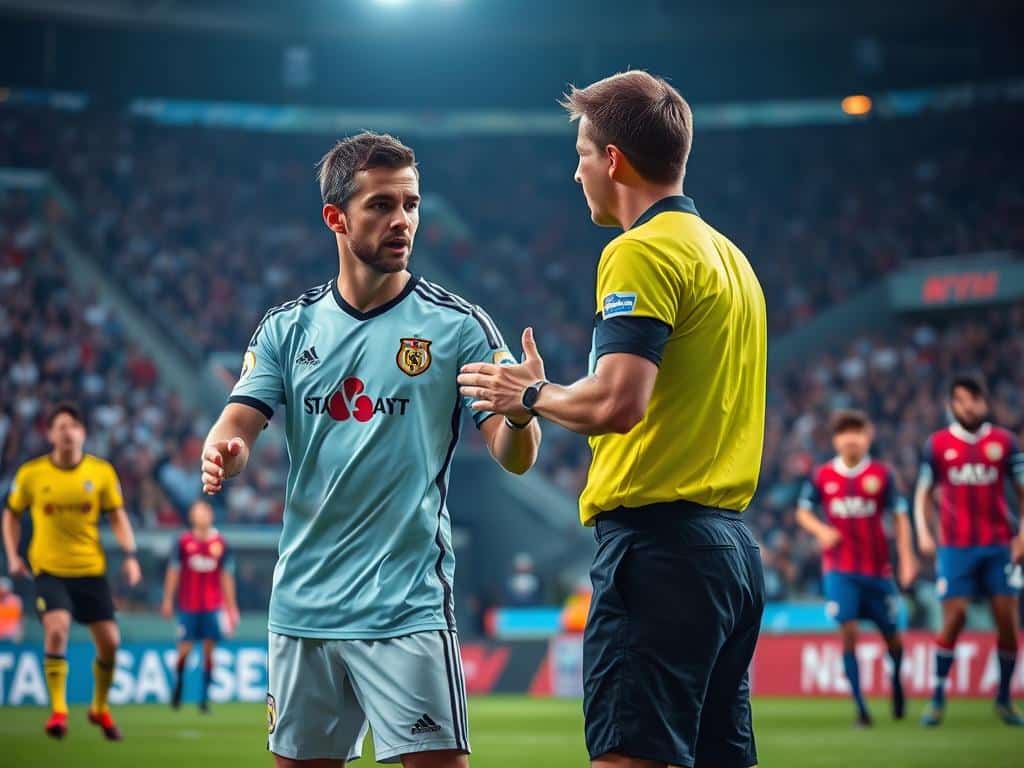
Acceptable Forms of Communication with Officials
While there are limits, some communication is okay:
- Team captains can ask for clarification on decisions
- Players can share info to help referees
- Coaches can give tactical advice, but not question referee calls
Consequences of Inappropriate Behavior
Disrespecting referees can lead to big penalties. Possible consequences include:
- Verbal warnings
- Yellow or red cards
- Ejection from the game
- Suspensions from future games
Respecting referees is vital in soccer. AYSO has a strict no-tolerance policy for referee abuse, including against youth officials. Penalties can be from warnings to lifetime bans. Players and coaches should keep the focus on the game, not arguing with officials, to uphold fair play.
Types of Misconduct Related to Referee Interaction
Soccer misconduct involving referees is a big problem in the sport. It includes verbal abuse and physical confrontations. These actions can ruin games and damage soccer’s integrity.
Verbal Abuse and Dissent
Referee abuse often happens through verbal attacks. A huge 80% of abnormal situations reported by referees involve such incidents. This includes players arguing calls, coaches yelling, and fans shouting insults.
About 15% of incidents involve coaches using foul language towards referees. They even threaten to report them.
Physical Confrontations
Physical confrontations with referees are rare but very serious. These incidents lead to immediate ejection and can cause long-term suspensions. Even just approaching a referee aggressively can lead to disciplinary action.
Unsportsmanlike Conduct Classifications
Unsportsmanlike behavior in soccer includes many actions. This includes excessive complaining, disrespectful gestures, and trying to unfairly influence referee decisions. About 20% of incidents involve aggressive behavior by coaches towards referees, including post-game disrespect.
Spectator interference, like yelling profanities or entering the field, makes up 10% of unsportsmanlike conduct situations.
These misconducts not only disrupt games but also set a bad example for young players and fans. Soccer organizations are trying to tackle these issues with stricter rules and education programs.
Penalties and Disciplinary Actions for Misconduct
Soccer disciplinary actions can be swift and severe. Referees have the power to issue penalties for misconduct on the field. These can range from verbal warnings to ejections, depending on the severity of the offense.
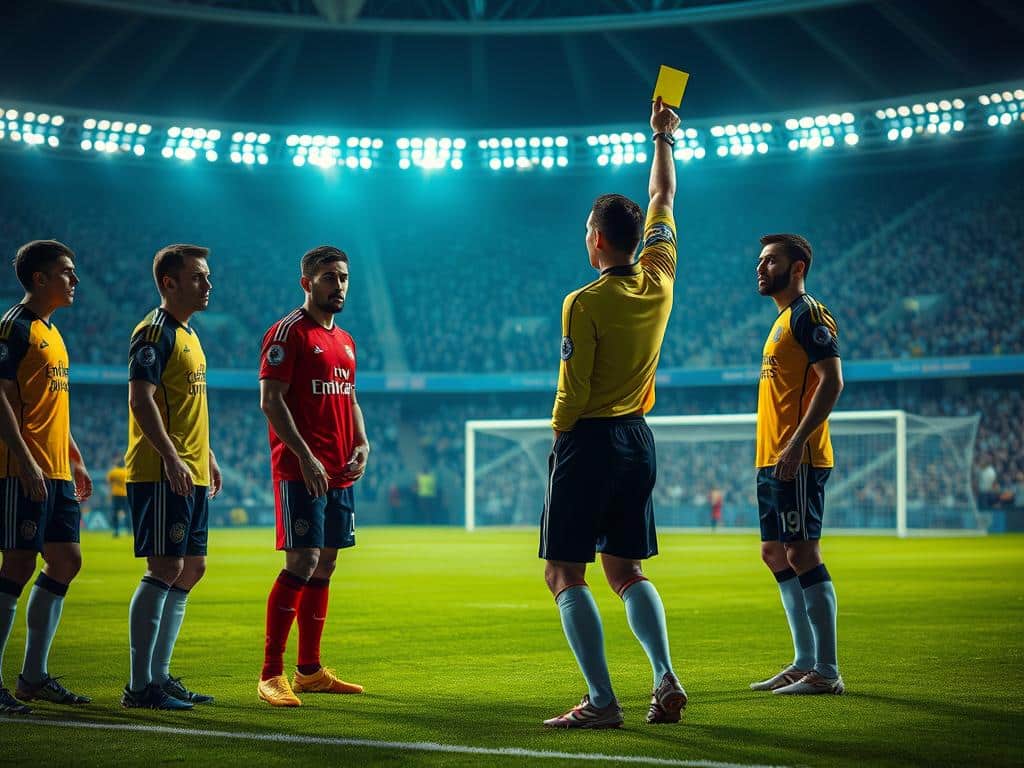
For first-time offenses, players might face a suspension lasting 14 days to a full season. Second offenses carry harsher consequences, with suspensions ranging from 30 days to lifetime expulsion. Third-time offenders risk being banned for a year or even life.
Referee penalties aren’t limited to suspensions. Teams may face monetary fines, game forfeitures, or removal from playoff contention. The CMSA Discipline Code outlines specific penalties for various infractions, categorizing them by severity.
Misconduct consequences extend beyond individual players. Member clubs bear responsibility for their players’ behavior and must prevent abuse or threats. The CMSA Discipline Committee reviews complaints and takes necessary actions to maintain fair play.
- Referees’ decisions on play-related facts are final
- Incidents must be reported promptly
- Discipline hearings may be requested for a $150 fee
- Refunds depend on the committee’s final decision
By enforcing these rules, soccer aims to maintain a safe and fair environment for all participants. Understanding these disciplinary measures helps players, coaches, and fans appreciate the importance of good sportsmanship on and off the field.
Professional Standards for Player-Referee Relations
Soccer etiquette is key to a respectful game atmosphere. How players and officials talk affects the game’s fairness. Let’s look at the best ways for player-referee communication and team captain duties.
Best Practices for Team Captains
Team captains connect players and referees. They have important tasks:
- Addressing concerns calmly and respectfully
- Representing the team’s interests during key moments
- Helping maintain order among teammates
Communication Guidelines for Players
Good communication between players and referees is vital. Players should:
- Avoid direct confrontations with officials
- Use appropriate language when addressing concerns
- Focus on the game instead of arguing calls
Coach and Technical Staff Protocols
Coaches and technical staff must set a good example. They should:
- Maintain composure on the sidelines
- Not interfere with referee decisions
- Deal with concerns through proper channels after the game
Following these standards helps everyone enjoy the game more. Respect for officials and clear communication keep the focus on soccer’s beauty.
Impact of VAR on Player-Referee Communications
The Video Assistant Referee (VAR) has changed how players and referees talk on the field. It started in the Premier League in 2019. VAR makes the game fairer but adds complexity to how players and referees communicate.
VAR has caused heated moments. For example, LaLiga referee Jesús Gil Manzano stopped the game just before a goal by Jude Bellingham for Real Madrid. This led to a lot of criticism from fans and players. VAR hasn’t solved all controversies; sometimes, it makes them worse.
But there’s hope. Premier League referees chief Howard Webb has a plan to improve VAR. He wants to use ‘Referee’s Call’ to set clear rules for VAR. He also plans to use new technology to make reviews faster. These changes aim to make player-referee talks clearer and help fans understand VAR better.
As soccer grows with technology, so must how players and referees communicate. The aim is to use VAR to make soccer more beautiful. But it’s important not to lose the human touch that makes soccer special. Finding this balance is key for soccer’s future.

